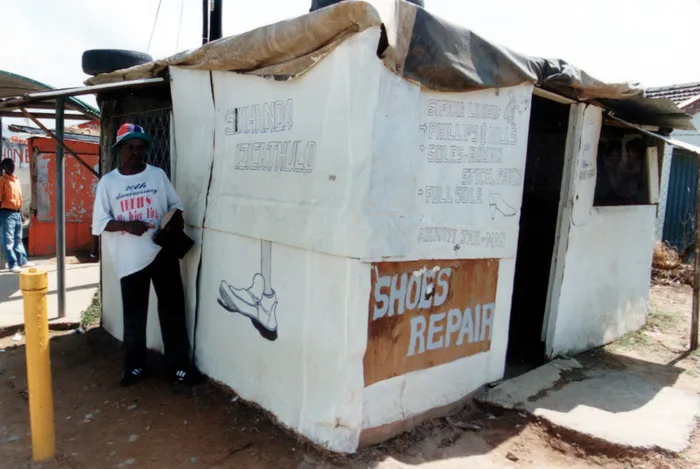Dithering government heaps pain on emerging businesses

By Gwinyai Taruvinga
South Africans experienced one of the worst periods of loadshedding with 205 days of power outages last year.
In previous years, there had been brief periods of power outages, but most of 2022 was a “dark period” for the country. This has huge ramifications for the economy which has also been badly affected by the Covid-19 pandemic.
In a report, The Sowetan listed businesses that had either been hamstrung or succumbed to the effects of load shedding, showing its devastating effects on the economy.
Businesses have had to adjust to the difficulties brought about by incessant power outages. Production is affected as electricity is at the heart of businesses’ day-to-day activities.
Businesses have reported payment issues as some speed points are affected by poor network connections. Most have had to incur additional costs to run generators, while businesses without this advantage have had to close for load-shedding periods.
Small Business Development Minister Stella Ndabeni-Abrahams recently lamented the effects loadshedding has, saying that South Africans cannot continue to lose their livelihoods. To assist businesses, the minister alluded to the fact that her ministry is working on finding solutions to assist small businesses that might not have the financial strength to weather the loadshedding storm.
In conjunction with the Small Enterprise Finance Agency, the Ministry of Small Business Development survey noted the challenges small businesses have faced. In this survey, it was noted that most businesses are highly dependent on electricity for operations, 71 percent of businesses have negatively been affected by loadshedding, and most businesses need alternative power sources for operations.
Another sector badly affected by loadshedding is the water sector. Due to constant power outages, many areas in Johannesburg have had to cope with severe water shortages. South Africa’s water sector challenges have been widely reported but loadshedding has exacerbated them.
The water infrastructure is old and dilapidated. That, coupled with power cuts, has resulted in challenges with the pumping of water from reservoirs to households and businesses.
The overall process of water being transported from reservoirs to households is heavily reliant on electricity, leading to water shortages in many households in areas such as Johannesburg and Nelson Mandela Bay.
As with many countries, energy and water are intertwined, meaning regular power cuts are a bad omen for water governance in the country. President Cyril Ramaphosa has on many occasions throughout the country’s power crisis outlined measures to address the challenges the country’s power utility, Eskom. has faced over the past few years.
In his first weekly letter of the year, Ramaphosa noted that the country needed to be “realistic” in its approach to addressing loadshedding, which he acknowledged had affected sectors such as agriculture, health, education, and the judiciary.
In his communication, the president noted that there were no “quick fixes” and that he would want lasting solutions to the challenges at hand. One of Ramaphosa’s biggest challenges since assuming the presidency has been the state of Eskom. The power utility has often blamed breakdowns at power stations for being one of the chief contributors to loadshedding, which it also noted would be a recurring theme in the country for the next two years.
In June, Ramaphosa established the National Energy Crisis Committee (Necom) to establish solutions to the power crisis the country has faced. In its progress report, one of the suggestions by Necom is the import of an external 300MW from Southern African Power, with negotiations to secure 1000MW from neighbouring countries starting this year.
Although this is a realistic approach, the southern African region faces an energy situation that has affected countries like Zambia and Zimbabwe, where power cuts are also prominent. Necom has also recommended that a team of independent experts work with Eskom to improve plant performance and diagnose problems.
Independent experts would go a long way in assisting the power utility to find lasting solutions to the power challenges. One of the debates for finding a solution to the power cuts has been the shift to alternative forms of energy such as solar energy and wind energy.
Large businesses and corporations, factories, mines and some households have gone “off the grid” to do away with reliance on Eskom’s services, however, this has done little to alleviate the pressure on the power utility. Alternative forms of energy are a step in the right direction in addressing power outages.
However, with a massive gap between the rich and poor, wealthier sections of society will likely be able to purchase alternative forms of energy while the rest of the population will still be at the mercy of the ailing power utility. It is, therefore, important for the government to find a lasting solution to load shedding. South Africa’s power utility has been plagued by governance issues.
This, many would argue, is at the heart of the challenge the country faces with electricity. The Governance Institute states that governance is “the system by which an organisation is controlled and operates and the mechanisms by which it, and its people, are held to account”.
This definition sums up the issues in Eskom and the country at large. It is only through addressing this governance deficit that load shedding can become a thing of South Africa’s past.
Dr Gwinyai Taruvinga ia a postdoctoral Research Fellow at the Wits Humanities Graduate Centre
Related Topics: